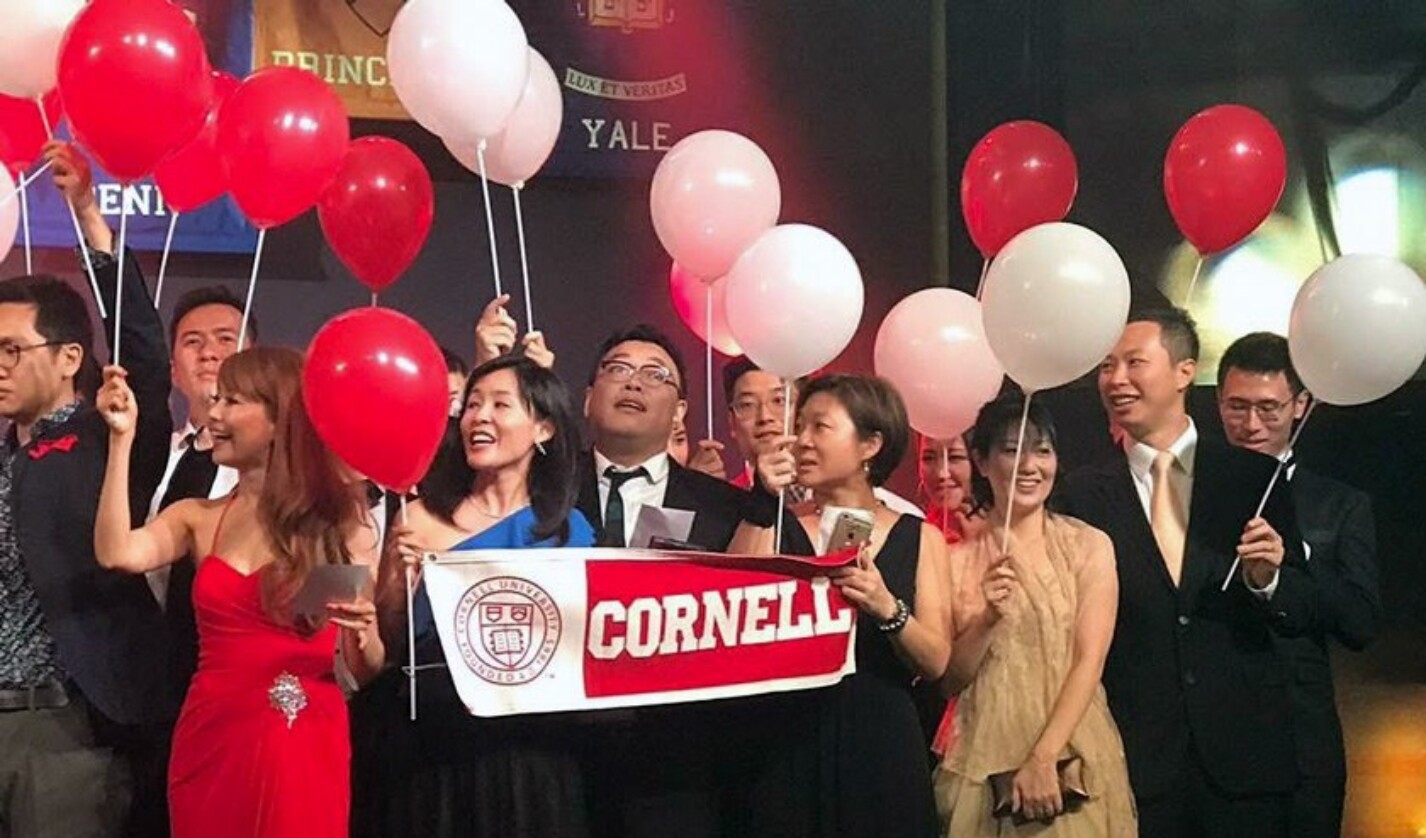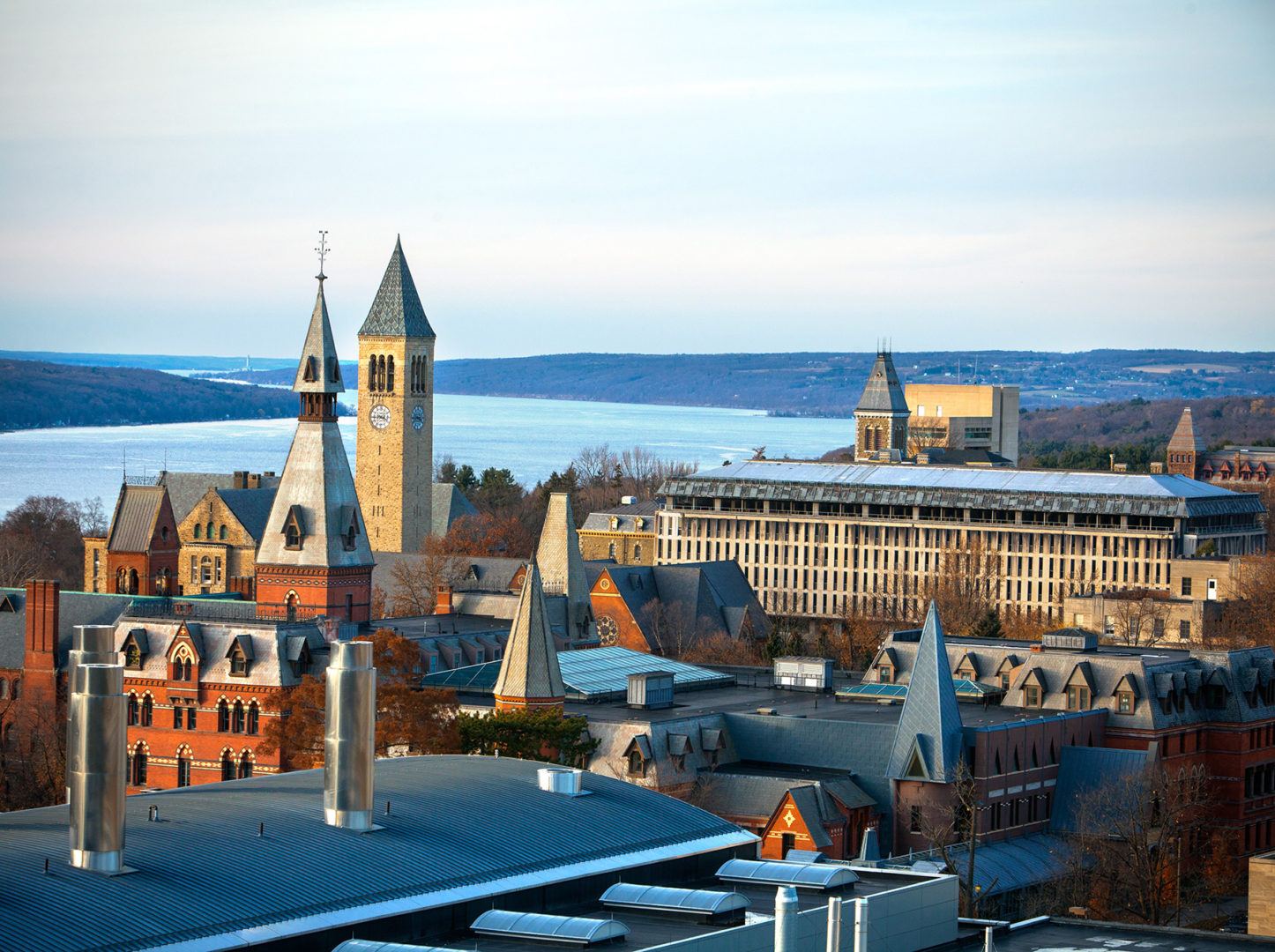Jonathan Poe ’82 and Anne Vitullo ’77 bolstered their Reunion-year giving through the university’s affordability challenge match program. The couple hopes to inspire fellow alumni to do the greatest good for Cornell students and beyond.
What inspired you to make the gifts?
Anne
The inspiration really comes from our time on campus as undergraduates—we were both scholarship students. We both benefited from gifts made before our time by alums who contributed to scholarship funds. So, when we had the means to do that, we felt it was really important to pay it forward.
If you look at our major gift history for Cornell, by and large, we focused on making Cornell affordable for students who are just like we were when we were on campus. Several years ago, we funded our first Cornell Tradition Fellowship, and we just began a second one as part of the To Do the Greatest Good campaign. We’ve also funded an endowment in the library that funds a student worker position each year and provides money for the worker’s salary.
For us, it’s always been about affordability and student aid.
Jonathan
To get to know Cornell, you have to get involved. We’ve been alumni leaders for a long time, and we want to be visible leaders in giving. It allows us to talk to our colleagues and the next generation of leaders—to inspire them to join us. It’s important to invest both your talents and part of your treasure.
What are some Cornell experiences you couldn’t have pursued without financial support?
Anne
I was very lucky that, during my first two to three years at Cornell, I didn’t have to take on a work-study job. I knew many people who did, but I had enough financial support between what my parents gave me, what I earned from a summer job, and then what the university provided that I didn’t also have to have a work-study job on campus.
That enabled me to focus on my studies, work for the Cornell Daily Sun, and volunteer for other things on campus. I wouldn’t have had time to do some of those things otherwise.
Jonathan
For me, really, it was the fact that we were the first class being recruited for minority diversity. There were eight of us that were the poster children for that initiative. We set up an entire program. I got paid to start recruiting and supporting minorities, finding student mentors for the program, and setting up pre-summer school courses that eased the transition to college.
I was helping this program go full-time to make Cornell as diverse as its land-grant mission. Getting paid for that was pretty cool, and the fact that I could kind of change the student body, even as a student, was probably very progressive for a university.
That’s what my financial support allowed—I was able to immediately help others as a freshman and leave a large legacy of different support services and processes that are still embedded in the university over 45 years later.
If you could talk to a future recipient of your gift or of your many gifts, what would you tell them?
Anne
Whenever we talk to students, we always encourage them to take advantage of everything that Cornell has to offer—both while they’re on campus as students and when they’re out there in the wider world as alumni. A lot of people, I think, need to be reminded periodically that there are really wonderful opportunities for lifelong learning. Once they graduate, they can make connections with people around the country and around the world.
Jonathan
And that’s an important point. That reminder isn’t just for students. We’re constantly reminding our seniors to make sure they have their bucket lists. If you don’t get through it, then continue that bucket list through your alumni years. Get to see those parts of Cornell that you haven’t seen before—that maybe you’re curious about—because you have that privilege. I’m always telling alumni that they still have library privileges, and I’m in high praise of that. We try to get alumni to reconnect in different ways and to make it a habit of helping others as they do so. Find others, and connect with others as part of your Cornell experience.
How would you encourage others in your Reunion classes and beyond to give back to Cornell?
Anne
It’s that personal connection that Cornellians build with people all over—not just with their class—but with all alumni. I think that personal connection is really important before we can actually effectively encourage others to give. I’ve really tried to focus on encouraging members of the class to reconnect, to come back and seek out some of their friends.
Jonathan
I will add that, as alumni leaders, we want to be facilitating that connection with all different parts of Cornell. You can connect with the administration and also with the professors or maybe your department head. There is a wide range of units and colleges. Cornell has many needs in many different sizes and shapes.
What does doing the greatest good mean to you?
Anne
The idea links clearly to the vision of the university’s founders and to Cornell’s land-grant mission, and it really comes down to us here in the 21st century. We need to take this idea out from the hilltop in Ithaca—we need to share our knowledge, our skills, our abilities—for the betterment of the nation, for the betterment of the people who live here, and for the betterment of the world.
Jonathan
I’ll add to that by focusing on the word greatest. In our “… any person … any study” model, however you think you can contribute, I would focus on how big or how great you can make it.
How are Cornellians positioned to effect change in the world?
Anne
It’s a combination of our educational backgrounds and the work we end up doing when we go out in the real world—in our jobs and our volunteer experiences. It’s our skills and talents and our passions. You throw all of that into the mix, and Cornell has something other schools don’t have. I think there is something in the water at Cornell that says you’re going to go out there, and you are going to help make the world a better place.
Jonathan
To me, “… any person … any study” carries a lot of unique combinations. It’s really incumbent upon those of us who are leaders to encourage others to find their own pathway to contribute. There’s an expectation that you’ll use your Cornell education for the greater good.
Is there anything else you’d like to share?
Jonathan
I hope other people will join us in giving to a good cause called Cornell, whether it’s through your checkbook, your talent, or your time. Help us pay it forward and join us in doing the greatest good as leaders of Cornell.





